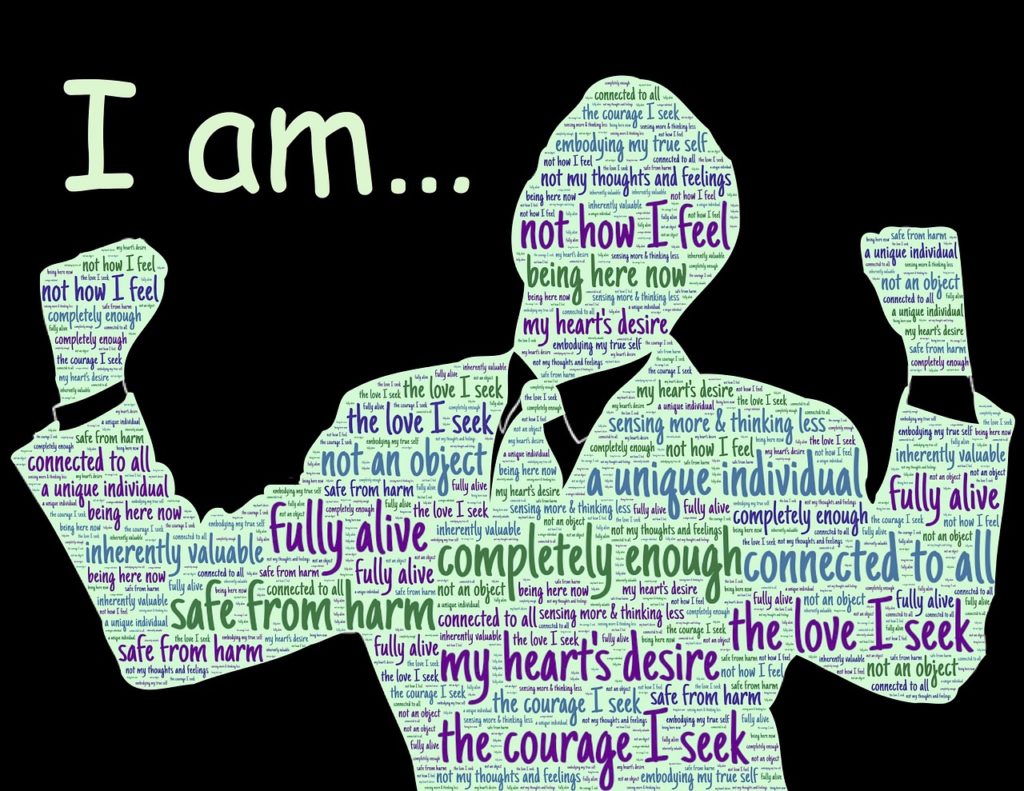If you have ever found yourself dealing with a stubborn behavior or habit that you have constantly tried to break and yet it doesn’t seem to budge. It’s because you are aiming at the symptom instead of the cause of the problem. The neurological levels is a framework in NLP that originally had 5 levels and later added a 6th level. The higher levels of the neurological level influence the lower levels on the ladder.

Environment

This is the lowest level of the ladder. This is where, when, or with whom a problem or solution happens. For example Sally experiences anxiety whenever her boss gives her a look at her job, when she gets in the car to drive, or when she goes out to crowded places. The way that most people deal with this is to avoid the places and times that this happens. Another example would be that Tom is afraid of heights; this fear is only activated whenever he is somewhere high up.
Behavior

This is the level that is usually focused on whenever people are doing things that don’t logically make sense. The behavior is merely a symptom of what is happening at a higher logical level. What that means is that if you make a change at the level of beliefs/values, then the behavior changes automatically (usually). If you make a change at the level of behavior, it may or may not make a change at the level of beliefs.
Capabilities

This level is where things start to get interesting. This level involves two parts. The first part deals with if a person has or doesn’t have the skill needed to accomplish something. For example if Bob can only type 20 words a minute and he applies for job that requires him to type 70 words a minute, it means that he has a skill deficit. The other part of this level involves how the mind is creating this behavior.
What I mean by that is the mind goes through a series of steps before the behavior occurs called a strategy or program. Joe comes home, he sees the house in a mess, then he says to himself “they always mess up this house after I clean it”, and then the anger sets off. It usually happens very quickly but I assure you that the mind processed several steps before the state of anger took place. In order to make a change at this level, we usually will recover the current strategy/program to see what is happening.
Then we will change the strategy and reprogram the mind to have a different response using a variety of tools such as the Swish Pattern. This logical level is where things start to become more unconscious. Programs tend to run unconsciously because the mind runs more efficiently when you don’t have to consciously think about what you are doing. If I was working with a weight loss client, one of the most important things to change are the programs that currently have the client eat when they are not hungry.
Beliefs
The Rules of Your Life

Beliefs are at the 4th logical level but they are two different things. Beliefs are the rules, generalizations, and conclusions that we make about our abilities, what’s possible, what’s not possible, how were supposed to act and perform. When I work with people this is usually the level that I want to get to as quickly as possible because when a change is made here, the behaviors tend to shift really fast. What we believe act as an on or off switch for capabilities.
For example if a woman believes that “men aren’t capable of loving a woman” it automatically shuts off her ability to find a good man and now she will find men who are losers or if she finds a good man, she will unconsciously sabotage it. Each time this woman dates or marries a loser, it will strengthen this belief. It can be very difficult to change a program if the problem is a negative belief. Working at this level is where a coach wants to work in order to create lasting changes.
Values

What we value are the things that are important to us. They are the unconscious blue prints that we used to make decisions. They provide motivation to move towards something we want or away from something we don’t want. When we think of values they usually involve abstract concepts such as Peace, Love, Freedom, Joy, Happiness, Fulfillment, and Success. When talking about values, we don’t mean tangible things like shoes or coaches. These intangible abstractions that we value also provide evaluation meaning the filters we use to judge if we like an experience or not.
Our values are also our measurements to determine whether we are happy or unhappy in a particular area of our life. All behavior is done to achieve a value. For example people don’t necessarily want a million dollars just to have a million dollars, they want the emotional state that comes with a million dollars “a sense of freedom”. People who smoke cigarettes may hate the cigarettes but they smoke in order to experience a feeling of relief.
A person may overeat to feel a feeling of love or comfort. If a person is happy at their job, it usually means that all or most of their values pertaining to their career are being met. If they are not happy at their job, it usually means that their values are not being met. The same is true for relationships.
One powerful thing that can be done to change an unwanted behavior is to find the value that the behavior is trying to accomplish and once that value is found, changing behavior becomes very simple. A behavior only provides two options, either to do it or don’t do it. Something like comfort can be experienced in dozens of different ways.
Identity

This is also known as your self-image or self-concept. A person’s self-esteem (how the feel about their self-concept/self-image)is directly connected to this level. There are different forms of identity, which I will cover more in depth in another article. Now you may be wondering what do I mean by Identity. The identity level like beliefs are generalizations but unlike beliefs, an identity level generalization is about yourself.
An identity level generalization is far larger than a belief about the world or how your’re suppose to act or perform. This level acts as a thermostat meaning that if you don’t see yourself as a successful person then whenever you start getting close to success, you’ll start to cool the jets that propel you to success. These generalizations come in the form of I am…. statements ie I am kind. These generalizations also run in the background of your unconscious mind and cause a self-fulfilling prophecy. Most identity level generalizations are usually unconscious (at least the negative ones).
Changing Identities
For example if you see yourself as a procrastinator then it will be very difficult to change your behavior of procrastinating (or should I say non-behavior). Although the identity level is a collection of generalizations about the self, just one of these generalizations can affect every context of your life. Therefore making one change at the level of identity tends to cause massive shifts in ones life. One of the reasons that affirmations are not permanent in some cases is that the person has a belief that contradicts the affirmation. For example if there is an ugly rundown building and you just put a sign on the building that says new building, that does absolutely nothing to change the building.
Let’s says for example that Bob beliefs he is a procrastinator, he doesn’t have to work hard to procrastinate. He is able to effortlessly keep putting things off. Let’s say that we get rid of the belief of Bob being a procrastinator and we create a new belief of being productive; Bob will now be able to effortlessly get things done because being productive is now who he is. In short if someone thinks of himself as unlovable and we transform that into being lovable, the world will be a completely different place for that person.
Although there is one level higher than this, this is usually the highest level needed to make massive changes in a clients life. But there is one level above the identity level. It has been called Mission, Spirituality, Greater Systems, etc.
Greater Systems

This level involves an entity, idea, or system that goes beyond the individual. For example if someone is apart of the Mafia, they are taught that the mafia family is the most important thing in their life. The mafia member is indoctrinated that if their mother is on her deathbed and the mafia calls you, you are expected to leave her side and go do the family’s bidding.
You also see this level when you look at members of Isis. It is very difficult to help someone change at this level without shifting their perspective on that system. Like I said earlier, most change is able to be done in coaching without focusing on this level.
Conclusion
Now you know about the neurological levels of why we do what we do. Whenever I work with people, I almost always use this framework because shifts can happen very quickly when combined with tools such as Hypnosis, NLP, or EFT. Thank you for reading this article. If you have any questions feel free to email me at vincent.blow@thegenesishypnosis.com or call me at 817-900-6398.

0 comments